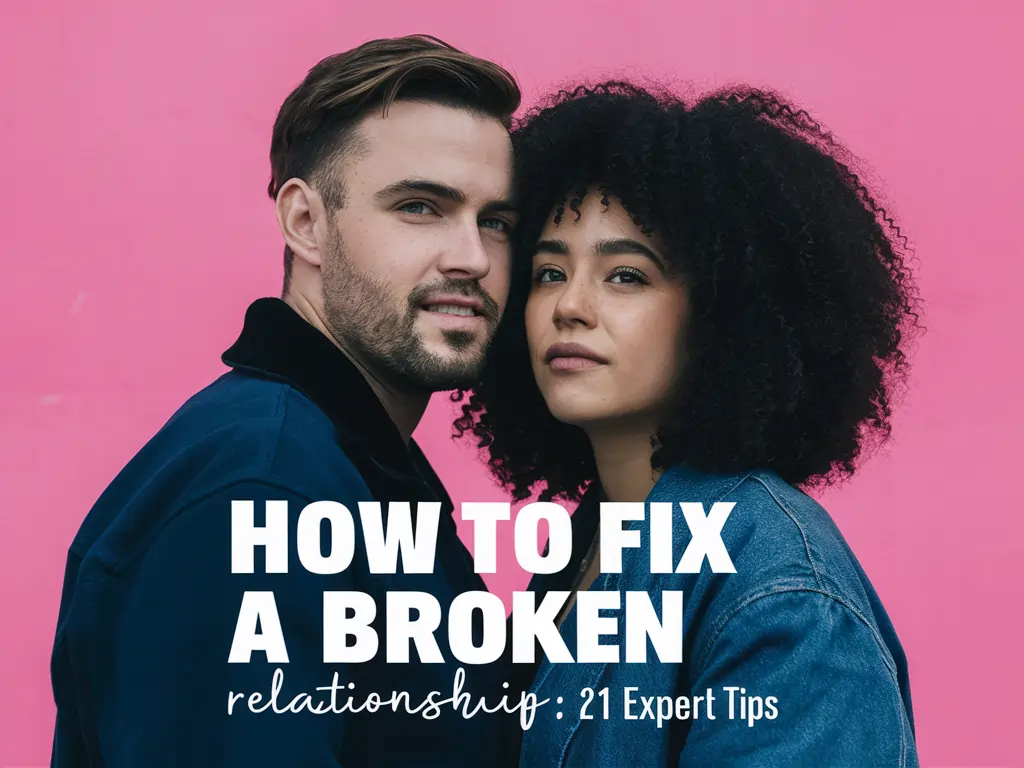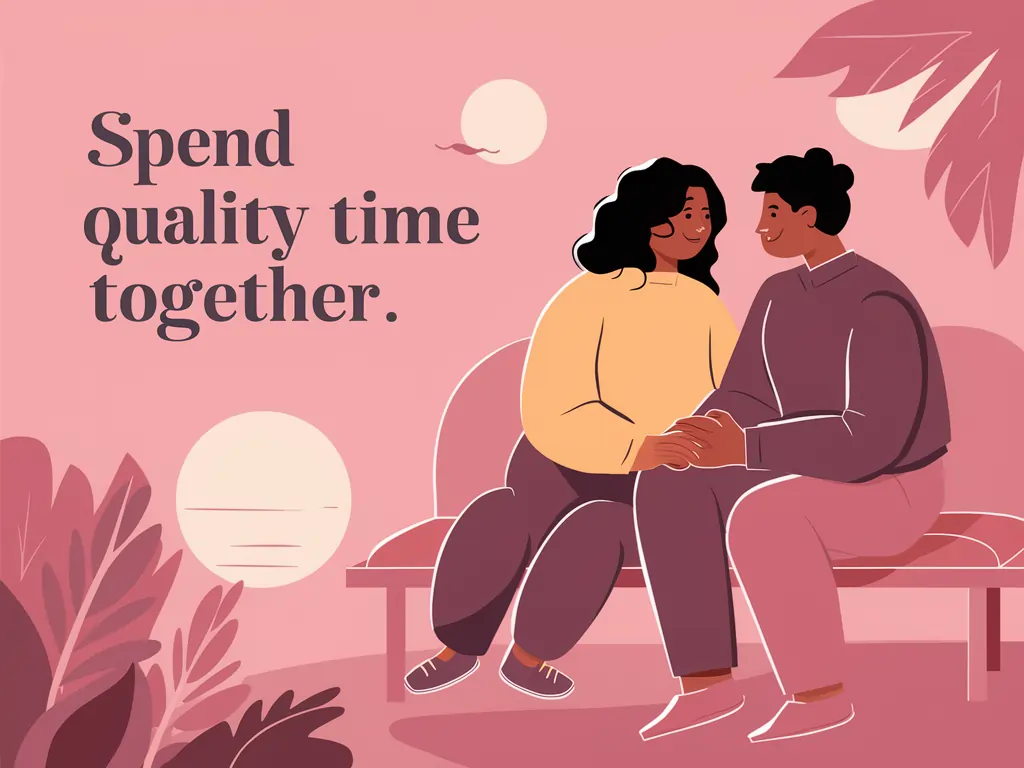How to fix a Broken relationship: 21 Proven Tips for Healing and Reconnection

Well, would you want to fix a broken relationship if you knew it was going to be hard? Many of us might hesitate if given a view into the hard work ahead. But isn’t the potential for growth and a deeper connection worth it?
More often than not, the relationship sounds so fragile; it disintegrates as if something falls due to some misunderstandings and unrealistic expectations. However, at other times, they are so very strong that with a little commitment towards healing and growth by both partners, things tend to work out. So, if you are now in the middle of a broken relationship, don’t lose hope. Many couples could sail through troubled waters with expert advice and true effort.
Here are 21 relationship fixing tips.
1. Communicate Openly and Honestly
Would you build a house without a solid foundation? Communication is at the root of any healthy relationship. Without it, resentment and misunderstandings multiply, breaking down the connection between partners. Healing a broken relationship requires both partners being committed to open and honest dialogue. Share your feelings, fears, and expectations without fear of judgment or retaliation.
First and foremost, there is the need for active listening. Give your partner the space to talk about what he or she is thinking and feeling. Neither you nor your partner should interrupt or invalidate each other’s experience. If both parties feel that their points are being heard and understood, then common ground could be more easily reached for re-establishing trust.
2. Look for Professional Help
Deep problems in relationships sometimes defy individual resolving. Professional advice by a therapist or counselor will further open your eyes to issues and propose methods of healing. Therapists may assist in ascertaining the underlying problems, work out better ways of communicating, and establish healthier relationship patterns.
Professional help is very conductive to creating a very neutral space wherein both partners can be themselves and talk about whatever they want. This is particularly very important if your feelings are running high and you find that regular conversations always seem to end in arguments. The therapist will guide productive discussions and help in steering through sticky subjects.
3. Rekindle the Romance
When a relationship has reached that bump, it’s easy to forget the ever-elusive romantic spark that initially drew you both together. Reigniting that flame can be an incredibly powerful way to reconnect and remember the love that’s there. Plan special dates, surprise each other with sweet gestures, and schedule time for intimacy.
It’s not the big things; it’s the small, everyday stuff that will help you both start feeling again. Hand-holding, sweet notes left around for one another, and making time for quality conversation can all help to rebuild that emotional connection.
4. Practice Forgiveness
Forgiveness is very important in a relationship, even more so when major hurts have occurred. Carrying this kind of emotional baggage of grudges and past mistakes you both hold against each other only creates distance and resentment. It may be tough to forgive, but doing so begins the process of healing.
In order to be able to forgive someone, one has to give up the need for revenge and really move on. It definitely does not mean condoning what hurt you but opting for the relationship over the hurt. True forgiveness involves empathy, understanding, and a commitment to positive change.
5. Clearly set Boundaries
Healthy boundaries help respect and trust to stay in a relationship. They help both partners grasp each other’s limits and expectations, consequently averting any misgivings, which would turn out avoiding conflicts. Be open about your boundaries and ensure that they are in the same way as your partner.
It’s not about creating distance; setting boundaries makes sure that the couple in a relationship is both safe and valued. Boundaries do not allow overstepping and give both of the confidence to express needs and desires that come with no judgment.
6. Focus on the Positive
It’s easy to get caught up in the negative when things get rocky. Sometimes, though, just a little positive focus can change everything. Take a little time out to appreciate your partner’s better qualities and what it is you love about them.
Expressing gratitude and appreciation of good behaviors will help in solidifying a sense of appreciation and love. It helps in the generation of a positive atmosphere, thus encouraging both partners to continue investing in the relationship.

7. Spend Quality Time Together
Amongst such chaotic lives, it’s obvious to lose sight of how to spend quality time with your partner. Yet, this is of key importance in keeping the torch burning bright. Be sure to set up designated time where both you and your partner are allowed to be free from work, phones, or social media.
Do things that both of you are interested in and in which you can interact with each other while having fun. From preparing a meal to taking a walk or enjoying some hobby, quality time strengthens the relationship and provides the opportunity and ability to reconnect with each other on a deeper level.
8. Address Issues Promptly
Things, when they go wrong, are so tempting to sweep under the carpet and hope they would resolve themselves. But more often than not, this has led to bigger problems later on. Most problems, if dealt with at an early stage and constructively, can be contained from becoming big.
Calmly and with respect, discuss the issues as problems and not as persons. Here, there are no winners or losers. So, when both have a commitment to the quick resolution of conflicts, it births an atmosphere of teamwork and cooperation.
9. Show Empathy and Compassion
Empathy is an important quality through which you want to give your partner a real understanding from your side, for which you need to respond accordingly. It brings the realization that you value your partner’s feelings and experiences, hence creating an emotional bonding.
Basically, it would mean being tender-hearted and sympathetic towards them even in the most difficult of times. Compassion would mean standing by the side of your partner, comforting them whenever they are dealing with any hassle and working on the problem with them. These qualities help build a more resilient and stronger bond in the relationship.
10. Take Responsibility for Your Actions
When your relationship isn’t going well, it is time that both partners take responsibility for what has happened and their contribution to all the problems. This step includes realizing one’s mistakes, apologizing with a true heart, and promising a change.
The second meaning of responsibility in relationships refers to being responsible for your behavior and working on your commitment. When both partners are willing to own up to their actions, this generates an environment based on trust and respect.
11. Rebuild Trust
More often than not, trust is the first casualty in a broken relationship. It takes time and a great deal of patient, relentless effort to rebuild it. Actions that evoke trust exhibit reliability, honesty, and integrity.
Be transparent with your partner, uphold your commitments, and through your actions, reveal you are really devoted to the relationship. Of course, such actions will rebuild trust and further strengthen the relationship.
12..Be Patient
Healing a broken relationship will not happen in one day. It calls for patience and the willingness to fight back together. Be willing to understand that there will be ups and downs, and sometimes progress may be slow.
Patience means giving you and your partner your time as each of you needs to heal and grow. It involves being supportive and understanding even when things are not going so well or quickly as you would want.
13. Rediscover Shared Goals and Values
Shared goals and values are what cement a relationship together. In a relationship in trouble, it will help to revisit some of those commonalities. Discuss your aspirations and dreams for the future, the values that matter to both of you.
Alignment of goals and values brings about a sense of unity and direction. It reminds one of things that brought them together and the future they want to build as a couple.
14. Prioritize Self-Care
You have to be at a full cup yourself if you want to show up fully in your relationship. There’s a fine line between being caring and being burned out in a relationship because you’re not taking care of your own needs. Make sure that you are doing the work of prioritizing self-care by being a part of activities that enable you to heal physically, emotionally, and mentally.
Self-care can come in many ways, such as exercise, hobbies, seeing friends, or just having a little me-time. If you’re taking good care of yourself, then you’re more capable and confident in adding value to your relationship.
15. Practice Active Listening
Active listening is a technique for getting engaged with your partner’s words, emotions, and deeper messages. The development of active attention, empathies, and properly response are an inherent part of the process. This form of listening will create bigger understanding and connection between the couple.
When you carefully listen to your words, you enable your partner to validate their feelings, to let them know that you hear and value them. This may occur in a manner that substantially enhances the quality of communication as well as the resolution of conflicts.
16. Reevaluate Your Communication Style
Sometimes, how we communicate can be at the root of the problem of miscommunication and misunderstandings. Take a second look at your way of communicating and make adjustments as needed so you can make improvements in communicating with your spouse.
Use “I” statements instead of “you” statements in expressing your feelings. This does not point a blame and is less likely to raise defenses. Observe your tone and body language, too; these carry a huge impact on the climate of communication. Try to convey your message in a loving and respectful manner.
17. Make Time for Self-Reflection
Self-reflection will help you grow as a person and in your relationship. Reflect on your behavior, attitudes, and contributions to the relationship. It might draw out things that need changing for the better.
The self-reflection process includes honesty regarding your needs and desires. Understanding yourself more helps in communicating effectively with your partner and developing a strong bond.
18. Show Appreciation
Feeling grateful for your partner can work magic in a broken relationship. Note the things done for you by them, and the good qualities that make the relationship great. This cultivates appreciation and goodwill.
Things as basic as saying “thank you,” complimenting your better half, or doing something special for them make them feel appreciated and loved. Appreciation tightens the bond between the two of you, creating a more optimistic environment.
19. Set Relationship Goals
Setting relationship goals gives you something to work towards, and through it, the focus remains on building your connection. These can be set with regard to the improvement in communication, getting intimate, or sharing activities.
Decide what you want to achieve as a couple and the steps you will take to realize those dreams. Moreover, striving for common goals imprints into the relationship the aspect of teamwork and commitment.
20. Embrace Change
Any relationship needs to undergo change. Embracing the change instead of struggling with it makes for a better adaptation and growing with each other. Be open to new experiences and insights as well as ways of relating to one another.
Though change is tough, it also is inseparable from opportunities for growth and improvement. A positive attitude toward change will enhance your relationship and help you face life’s hurdles together.
21. Never Give Up
Most importantly, if your relationship is something you feel worth fighting for, then do not give up. All relationships have their problems, but most are repairable if two people work really hard for it, love, and are dedicated. Reminisce about what made you fall in love and stay faithful to working back the connection.
Perseverance is the key to mending a broken relationship. Be patient, keep searching for help in whatever way possible, and trust in a more beautiful possibility of a shared future ahead.
FAQs
How do you fix a broken relationship when you still love each other?
To fix a broken relationship when you still love each other, focus on improving communication, seeking professional help if needed, and making a conscious effort to reconnect through quality time and shared activities. Practice empathy, forgiveness, and patience as you work through challenges together.
Can a broken relationship be fixed?
Yes, a broken relationship can be fixed with commitment, effort, and the right strategies. It involves addressing underlying issues, improving communication, rebuilding trust, and fostering a positive connection. Seeking professional help can also be beneficial.
What are the signs of a broken relationship?
Signs of a broken relationship include frequent arguments, lack of communication, emotional distance, loss of intimacy, and feelings of resentment or frustration. Other signs may include a lack of trust, unmet needs, and a general sense of dissatisfaction.
How long does it take to fix a broken relationship?
The time it takes to fix a broken relationship varies depending on the severity of the issues and the effort put in by both partners. It can take weeks, months, or even longer to fully heal and rebuild trust. Patience and consistent effort are crucial during this process.
What should I do if my partner doesn’t want to fix the relationship?
If your partner doesn’t want to fix the relationship, it’s important to have an honest conversation about their reasons and feelings. Understand their perspective and express your own. If they are unwilling to work on the relationship, you may need to evaluate your options and consider seeking professional advice.
By implementing these expert tips and remaining dedicated to improving your relationship, you can overcome challenges and build a stronger, more fulfilling connection with your partner. Remember, every relationship has its ups and downs, but with love and effort, many can be mended and thrive.
4o


![Stage Academy: Master Your Communication Skills [ Free Down]](https://readerboot.com/wp-content/uploads/2025/05/tcWy6bUOT1OZ5UVtM9WY_Screen_Shot_2022-10-08_at_9.32.56_pm-884x768.png)



